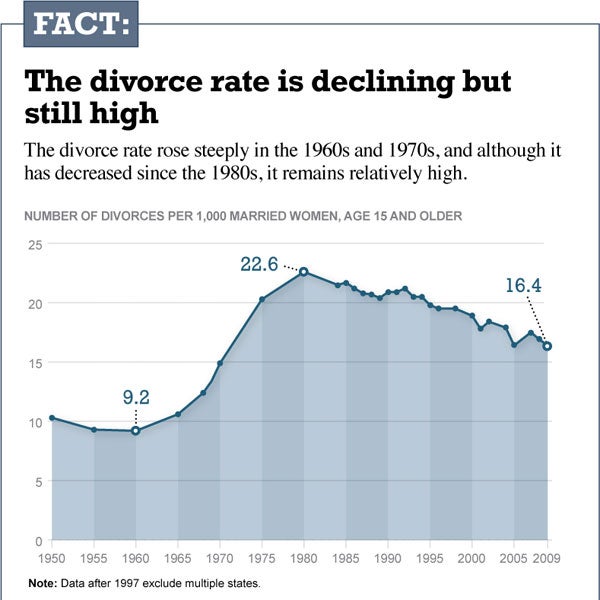Family Fact of the Week: The Far-Reaching Impact of Divorce
Collette Caprara /
While divorce at any age comes with potentially negative effects, according to new research from Michigan State University, divorce at a younger age can hurt people’s health more than divorce that occurs later in life.
In fact—given that younger couples are also more likely to have children living at home—the negative impact of divorce within this age cohort can go far beyond the health of the couple. Decades of research provide evidence that children living with both parents fare better in virtually every aspect of well-being.
As research on Heritage’s FamilyFacts.org illustrates, adolescents who do not live in intact families are more likely to engage in substance abuse, exhibit behavioral problems, have poor academic performance, and engage in risky behavior, including becoming sexually active at an early age.
In addition, children who do not live with both parents are more likely to experience psychological and emotional problems ranging from low levels of social competence and self-esteem to anxiety and depression.
Moreover, the effects of divorce can have a ripple effect in the next generation, given that children tend to follow the marital trajectory of their parents. Children who have experienced parental divorce tend to experience more problematic and less rewarding marriages and are more likely to divorce. In fact, even the divorce of grandparents has been linked to a greater likelihood of third-generation divorce.
Conversely, the positive effects of marriages that stay intact can extend for generations to come. A combination of policy reforms and public education to promote strong and stable marriages can go far to prevent the ricocheting damage of marital dissolution.

